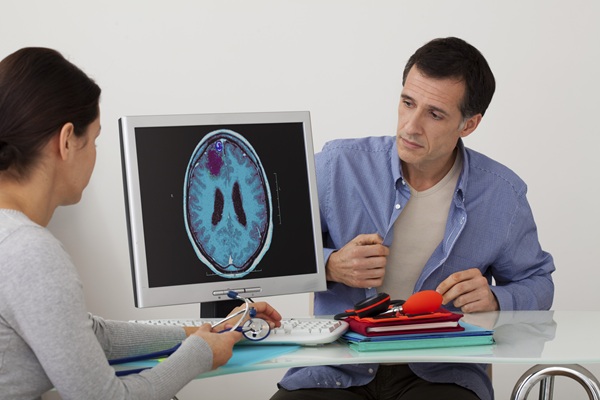What to Expect at Your Brain Surgeon Meeting

Meeting with a brain surgeon can be intimidating for patients. This is understandable given the serious nature of brain surgery. The purpose of the appointment is usually to plan the procedure. However, it can also be a consultation to determine whether or not an operation is actually necessary. In either case, it is helpful for a patient to know what to expect and how to get ready for the appointment.
How to prepare
Preparation for the appointment largely involves gathering the proper documents to bring along:
- Medical history
- Allergies
- Current medications
- Insurance information
- Latest test results
- Imaging reports and copies of images
Depending on what facilities are available in the hospital or primary care physician's office, copies of the imaging studies may be available on disc or on film. Either way, the brain surgeon should have the equipment necessary for evaluation.
Patients may have the ability to access registration forms right away when scheduling the appointment. If so, filling these out beforehand to bring along with the rest of the documentation is more convenient for everyone and helps the appointment start on schedule.
Part of the purpose of the appointment is for the individual to understand as much as possible about the condition requiring possible surgery. Therefore, it is to the patient's benefit to prepare questions beforehand regarding anything that is still unclear.
What to expect on the day
Needless to say, the patient will submit all documentation on or before the day of the appointment. There may be a brief pause in the waiting room until the brain surgeon is ready to see the person.
Prompt arrival
Both the patient's and the surgeon's time is valuable. The patient can help the surgeon keep to the timetable by arriving at least 15 minutes prior to the scheduled appointment time.
Questions about the condition
The surgeon and assistants will always give the affected person an opportunity to ask questions. The patient should take advantage of this time to learn more about the condition and possible treatment options. An operation cannot legally take place before the surgeon obtains informed consent, but an individual who does not truly comprehend the condition and the procedure cannot give it.
Conversations with staff
The patient will usually meet and converse with the brain surgeon during the appointment. However, conversations may also take place with a physician assistant or a nurse. These professionals assist the surgeon by shouldering some of the responsibility for interviewing and examining patients.
Additional testing
To further evaluate the condition, determine the patient's suitability for surgery and start planning the procedure, the brain surgeon sometimes needs to perform additional testing. These assessments may include an angiogram to evaluate the blood vessels in the patient's brain or an electroencephalogram to monitor neurological activity. It may also be necessary to schedule additional evaluations for a later date.
Conclusion
Preparation, organization and promptness can help the appointment go smoothly for surgeon and patient alike. Understanding the condition and treatment options is important, so patients should always be prepared to ask questions.
Request an appointment here: https://arizonaneurosurgeon.com or call Randall Porter, M.D. at (602) 603-8951 for an appointment in our Phoenix office.
Check out what others are saying about our services on Yelp: Read our Yelp reviews.
Recent Posts
Brain metastases are a serious medical condition where cancer cells spread from a primary tumor to the brain. They are more common than primary brain cancer tumors and can indicate an advanced stage of systemic cancer. This condition can significantly affect your quality of life and requires professional diagnosis and treatment.Brain metastases occur when cancer…
Facial reanimation is a specialized surgical approach designed to restore movement and expression in individuals affected by facial paralysis. This condition may result from trauma, nerve injury, tumor removal, or conditions such as Bell’s palsy. Facial reanimation combines microsurgical techniques, nerve grafting, and muscle transfers to improve function and appearance. When performed by a skilled…
Brain surgery is a complex and delicate procedure. It requires strict aftercare to ensure optimal recovery and few complications. Following the advice of your brain surgeon can help aid your healing process and make your long-term treatment a success. Here are some general tips from Randall Porter, M.D. team to help patients and their caregivers…
Considering undergoing back pain treatment from an experienced chiropractor? There are many different types of back pain one can experience. There are also many different types of back pain treatments available from a chiropractor. While back pain is more common as one gets older, anyone can experience back pain. The most common cause of back pain…


